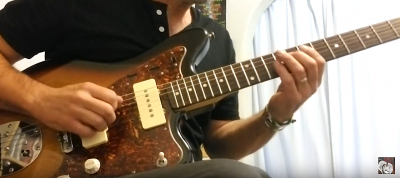The Major Pentatonic Scale |
|
|
|
|
|
| Oct 1 2013, 04:15 AM |
|
Ok, good. I understand that, but earlier it was stated that to play major pentatonic scale over major chords to sound more rock style, and to play minor pentatonic over a minor or blues progression to get that "minor feel" or to sound bluesy. But now we're saying it does NOT matter what scale is played as the rhythm player playing the underlying chords is going to create that feel. More confused now???? That's more of a 'phrasing' thing. I would advise to always take with a grain of salt when you hear or see the words: "you'll sound more rock if ..." or "you'll sound jazzier if ...". Any collection of notes - any - can sound rock or jazz or klezmer or whatever depending on how you play them. -------------------- - Ken Lasaine
https://soundcloud.com/klasaine2/foolin-the-clouds https://soundcloud.com/klasaine2/surfin-at-the-country-hop Soundcloud assorted ... https://soundcloud.com/klasaine3 New record ... http://www.cdbaby.com/cd/kenlasaine Solo Guitar ... https://www.youtube.com/playlist?list=PLXZh...5iIdO2tpgtj25Ke Stuff I'm on ... https://www.youtube.com/playlist?list=PLXZh...b-dhb-4B0KgRY-d |
|
|
||
1 User(s) are reading this topic (1 Guests and 0 Anonymous Users)
0 Members:






















